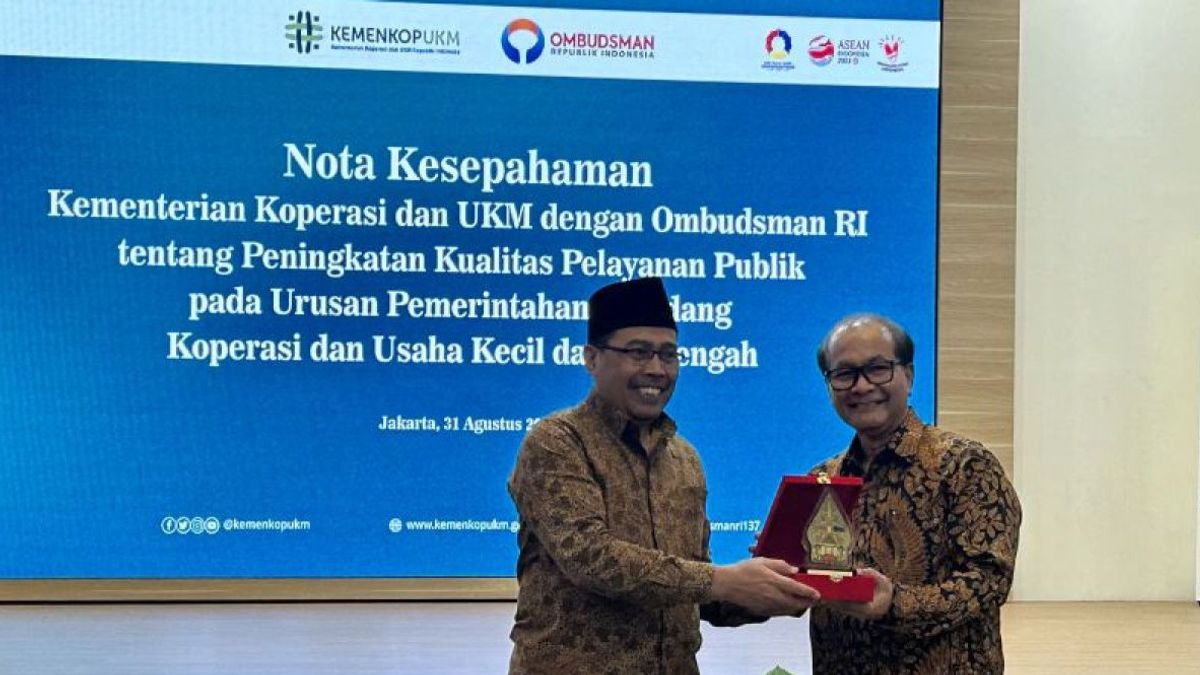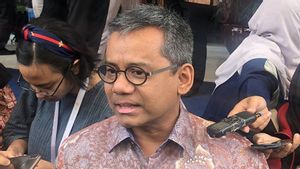JAKARTA - The Ministry of Cooperatives and SMEs (Kemenkop UKM) together with the Indonesian Ombudsman opened a People's Business Credit (KUR) complaint post for cooperatives and MSME actors who aim to improve access to services and quality of KUR distribution.
Secretary of the Ministry of Cooperatives and SMEs Arif Rahman Hakim said the complaint post was made to ensure that the distribution of KUR to the public went smoothly according to the rules. This is because he admits that there are frequent irregularities committed by KUR distributors by asking for additional collateral with a ceiling of up to Rp. 100 million.
As for the Regulation of the Coordinating Minister for Economic Affairs No.1/2023 concerning Amendments to the Regulation of the Coordinating Minister for Economic Affairs of the Republic of Indonesia Number 1 of 2022 concerning Guidelines for the Implementation of People's Business Credit, it also regulates the provisions of sanctions for the distribution of deviant KUR.
"For KUR distributors who wear additional collateral on a ceiling of up to Rp. 100 million, they will be subject to sanctions in the form of interest subsidies or unpaid KUR margins or refunds of interest/margin subsidies that have been paid," Arif said as quoted from his written statement, on Friday, September 1.
Arif said this complaint post was also opened to improve access to services, supervision, and quality of KUR distribution. That way, it is hoped that more MSME players and cooperatives will access KUR for financing and increasing their business.
"Through this activity, it is hoped that the real conditions based on public complaints can be described regarding the realization of the distribution and accuracy of the KUR program targets for MSME actors," he said.
On the same occasion, the Chairman of the Indonesian Ombudsman Mokhammad Najih emphasized that with this KUR complaint post, it is hoped that people who have complaints and obstacles related to KUR can be resolved and resolved.
"So, these complaints can be reduced. Moreover, KUR has an impact on economic activities in society and the state," he said.
SEE ALSO:
Najih said that the complaints encountered in the community included collateral issues and several requirements processes that took quite a long time.
"This is what we will look at. From this complaint base, how can we resolve the obstacles," he said.
For your information, the government targets KUR distribution to reach 30 percent by 2024. Currently, the distribution of KUR has only reached 20 percent of the total bank credit distribution.
The English, Chinese, Japanese, Arabic, and French versions are automatically generated by the AI. So there may still be inaccuracies in translating, please always see Indonesian as our main language. (system supported by DigitalSiber.id)















